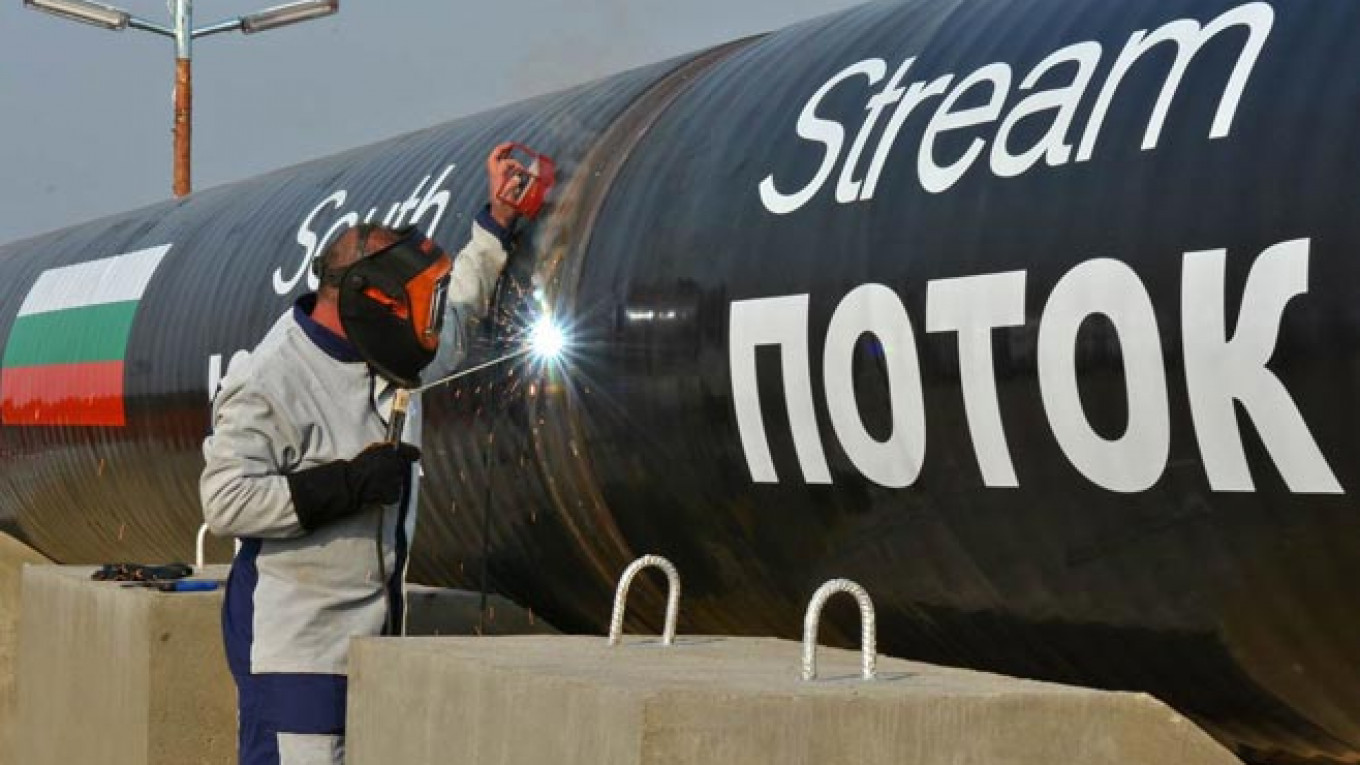Many of the European Union's eastern member states will resist moves to impose wide-ranging sanctions on Russia over its intervention in Crimea, mainly because their own economies could suffer.
Below are details of how some of the ex-communist EU states are economically exposed to Russia:
Bulgaria
Imports from Russia accounted for 18.5 percent of Bulgaria's total imports last year, worth about $6.6 billion. Russia is Bulgaria's biggest source of imports.
Energy is the main import from Russia. Bulgaria gets about 90 percent of its gas from Russian firm Gazprom. Its only oil refinery, controlled by Russians, LUKoil, works on Russian crude and its only nuclear power plant, which provides more than 40 percent of electricity, operates two 1,000 MW Soviet-built reactors that work on Russian nuclear fuel.
Last year some 700,000 Russians were among Bulgaria's 2.6 million tourists. Tourism revenue makes up about 13 percent of annual gross domestic product.
Czech Republic
In 2012, the latest year for which figures are available, 66 percent of Czech imports of natural gas came from Russia.
Exports to Russia in 2013 were worth $5.8 billion, and represented 3.67 percent of total exports. Imports from Russia were worth $7.8 billion.
Russia's largest steelmaker Evraz has a plant in the Czech Republic.
A consortium including Russia's Atomstroyexport is competing in a multi-billion dollar tender to expand the Temelin nuclear power plant. Russian firm TVEL supplies CEZ nuclear power units with fuel.
In 2013, Russians accounted for the second-largest group of tourists coming to the Czech Republic with 759,000 people, or 10.4 percent of total tourists. The Czech Chamber of Commerce estimates that strict economic sanctions would cost up to 50,000 jobs.
Hungary
Russia is Hungary's largest non-EU trading partner. Exports to Russia last year were worth 2.55 billion euros ($3.5 billion) of total exports worth 81.7 billion euros.
Hungary imports about 80 percent of its gas needs from Russia.
The government has signed an agreement with Russia's Rosatom to expand the Paks nuclear power plant that supplies about 40 percent of Hungary's electricity.
Russia is Hungarian drugmaker Richter's biggest market. The company has warned first quarter profit will fall due to the ruble's slide.
Lithuania
About one-fifth of Lithuanian exports go to Russia, though a large part of this is "re-exports," meaning that Lithuanians are importing the goods from a third country and then shipping them on to Russia.
Lithuania and its industry are almost totally reliant on Russia for energy resources. Nerijus Maciulis, chief economist at Swedbank Lithuania, said gross domestic product could shrink by 10 to 15 percent if the strictest sanctions are imposed, tipping the country into renewed recession.
Poland
Russia accounts for 90 percent of Poland's oil imports and more than half of its gas.
Russia is Poland's second-largest trade partner, with combined 2013 imports and exports accounting for 8.8 percent of foreign trade, worth $36 billion.
Romania
Romania's exports to Russia totaled 1.3 billion euros ($1.8 billion) in the first 11 months of 2013 or 2.8 percent of overall exports. Romanian imports from Russia were 2.1 billion euros from January to November 2013, representing 4.2 percent of total imports.
Romania is much less dependent on imported gas than other countries in the region. Romanian gas fields provide about 80 percent of domestic needs, and President Traian Basescu said that if Russia cuts gas deliveries, the effects will not be substantial.
Slovakia
Exports to Russia in 2013 were worth 2.55 billion euros ($3.5 billion), or 3.96 percent of total exports. Imports from Russia were worth 6.15 billion euros ($8.5 billion)
Fuel for two nuclear power plants is imported from Russia. Rosatom has been in talks to take part in constructing new nuclear power units in Slovakia.
Slovakia is nearly 100 percent reliant on Russian gas, and its budget revenues depend on the tariffs it charges for Russian gas crossing its territory.
Slovenia
Slovenia is among the EU countries with the largest surplus in trade with Russia. It exports some 1 billion euros of goods and services to Russia per year, about 4.6 percent of total exports.
For Slovenia's largest listed company, pharmaceutical firm Krka, Russia is the biggest single market. Krka has a factory in Russia and last year sold products worth 300 million euros ($413.5 million) to Russia, a quarter of its total sales.
A Message from The Moscow Times:
Dear readers,
We are facing unprecedented challenges. Russia's Prosecutor General's Office has designated The Moscow Times as an "undesirable" organization, criminalizing our work and putting our staff at risk of prosecution. This follows our earlier unjust labeling as a "foreign agent."
These actions are direct attempts to silence independent journalism in Russia. The authorities claim our work "discredits the decisions of the Russian leadership." We see things differently: we strive to provide accurate, unbiased reporting on Russia.
We, the journalists of The Moscow Times, refuse to be silenced. But to continue our work, we need your help.
Your support, no matter how small, makes a world of difference. If you can, please support us monthly starting from just $2. It's quick to set up, and every contribution makes a significant impact.
By supporting The Moscow Times, you're defending open, independent journalism in the face of repression. Thank you for standing with us.
Remind me later.






